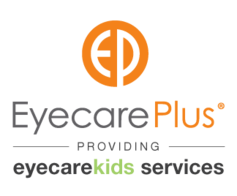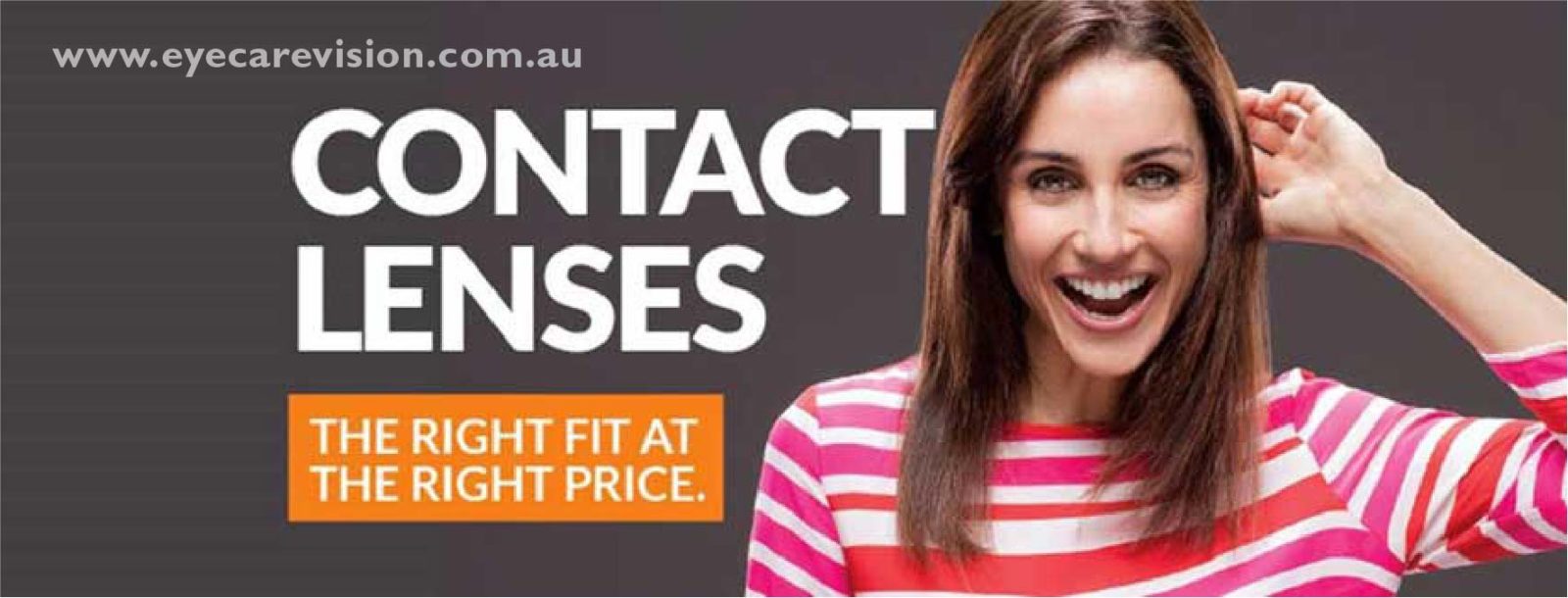Apprehension. That familiar feeling when trying out something new—especially something that directly touches the eyes. This is a common reason why people who wear spectacles refuse to go the contact lens route. And when they do consider it, many questions arise, and quite understandably so.

Dr Julia Ong, therapeutically endorsed optometrist, answers questions frequently encountered by optometrists regarding contact lenses.
Q: Are contact lenses safe for my eyes?
A: Since everyone’s eyes are different, the safety of wearing contact lenses depends on each individual patient. Contact lenses are safe to wear given proper lens care, hygiene and maintenance are performed as advised by the optometrist. The risk of contact lens-related eye infection and complications are low with good compliance and regular contact lens reviews.
Q: I have never worn contact lenses before. Is it difficult to put them in?
A: If you are new to wearing contact lenses, it might seem difficult initially. However, with proper technique and guidance by your optometrist, you will in no time become experts in inserting and removing contact lenses by yourself. Most people become adept at handling contacts lenses much faster than they expect to!
Q: What type of contact lenses are available?
A: Contact lenses are becoming ever so popular for many people who want to see clearly without the restrictions of glasses. There are generally two types of contact lenses available on the market—’soft’ and ‘hard’. Soft contact lenses are more commonly used than hard contact lenses, accounting for 85% of contact lenses dispensed. They are made from soft, flexible plastics and allow oxygen transmission through the lens material and to the eye. Since they can be easily deformed, they allow the wearers to feel comfortable almost immediately upon insertion, with a short adaption period. Hard contact lenses, or rigid gas permeable (RGP) lenses, are made from rigid durable plastic and allow more efficient transfer of oxygen to the surface of the eyes. Due to their rigidity, they offer sharper vison correction compared to soft lenses. Hard lenses can be used to treat wide range of ocular conditions such as keratoconus. For suitable contact lens options to correct your vision and suit your daily lifestyle, speak to your optometrist.
Q: How do l know which contact lenses are best for me?
A: New contact lens materials and lens care technologies have made modern contact lenses more comfortable, safer and easier to wear. The best contact lenses for one patient may differ to that of another patient. There are many factors that need to be considered when choosing the most suitable contact lens for your eyes. These include visual needs, job demands, comfort, convenience, contraindications and reasons for wanting contact lenses.
Q: How long does it take to get used to wearing contact lenses?
Contact lenses are relatively easy and simple to use. Most people get used to wearing contact lenses faster than they expected. However, the adaptation period depends upon several factors, including type of lenses, age and dexterity. Soft contact lenses have short adaptation period, which means they are comfortable to wear almost immediately; whereas, hard contact lenses have a longer adaptation period due to their rigidity and smaller diameter.
Q: Is it difficult to take care of contact lenses?
A: The convenience and comfort of wearing contact lenses are maintained through proper care and cleaning. Contact lenses can be a reservoir for accumulation of microorganisms and deposits such as protein. If not removed, these deposits can be absorbed through the contact lens material and overtime build-up, which may result in reduced comfort and vision. Proper lens case cleaning and frequent lens case replacement are essential for minimising the risk of contamination. If you are person who does not like to follow procedures, then daily disposable lenses are most suitable option as no maintenance is required. Instructions for caring for your lenses will vary accordingly. It’s vital to follow your optometrist’s instructions.
Q: Can the contact lens roll to the back of the eye?
A: No. One major concern most patients worry about is whether the contact lenses can get lost in the eye. I am happy to inform the good news that it is impossible. The worst scenario that could happen is the contact lens may get dislodged or displaced, however after a few blinks it can be relocated. The inner surface of the eyelids has a thin lining called the conjunctiva, which folds back and becomes the white part of the eyeball. The continuous nature of the conjunctiva makes it impossible for anything to get behind the eye.
Q: Can I sleep with my contact lenses on?
A: One of the many non-compliant habits carried out by contact lens wearers are sleeping or showering with their lenses. Despite modern contact lenses designed to be more breathable and allow high oxygen transmission, wearing contact lenses to sleep is still not recommended. The safest practice is to remove them before sleeping or napping. During the day, our eyes receive oxygen from the tears and surrounding air. However, when we are sleeping there is less oxygen being transmitted to the cornea, which is further limited with a contact lenses acting as a physical barrier on the eye. Sleeping with contact lenses can block the supply of oxygen to the eye and lead to contact lens-related complications such as red eyes, pain and light sensitivity. Overtime, it can lead to a severe condition called corneal neovascularisation, where certain parts of the cornea is deprived of oxygen. Therefore, it is best to avoid sleeping with contact lenses to minimise risk of infection.
There are some contact lenses that are specifically designed to be worn overnight, referred to as ‘extended wear’. If you are interested, it is best to see your optometrist to get more information about the lenses.
Q: In the past, my contact lenses were uncomfortable. Are there new designs that help with comfort?
A: Over the past couple of years, there have been numerous advancement in both lens material and designs, allowing individuals to wear lenses that provide good vision along with satisfactory comfort. If you have been a previous unsuccessful contact lens wearer due to discomfort, it may be best to book an appointment to see your optometrist for more variety of contact lens choices.
Q: Is buying contact lenses online the same as buying it at the shop?
A: These days individuals enjoy the convenience of purchasing products online, and that is no different for online contact lens. However, before buying contact lens online, you must consider whether it is the best option for your eye health. There are many online contact lens sellers, but they are not all reputable. One of the many added benefits of buying contact lenses with your optometrist is the regular aftercare visits to check the overall health of the eyes and invaluable advice offered regarding contact lens care and hygiene.
Q: Should l wear glasses instead of contact lenses?
A: Regardless of whether you choose to wear spectacles or contact lenses for vision correction, certain factors are to be considered in the decision-making process. Such factors include visual demand, occupation, comfort and convenience, but at the end of the day, it comes down to personal preferences. Each category has their pros and cons. Glasses require minimal cleaning and maintenance and carries no risk of infection to the eye. Individuals also see it as a trendy fashion statement and an extension of their personality. Though, it comes with restrictions, especially when participating in contact sports and outdoor activities. This is where the convenience and freedom of contact lenses come into play.
Q: Can l use water to clean my contact lenses if I ran out of solution?
A: Water must never be a substitute for contact lens cleaning, disinfecting or storage solution. Water contains microorganisms that can bind onto contact lenses and lead to severe contact lens-related eye infection.
Q: What happens when I wear contact lenses for longer than the prescribed time?
A: Contact lenses are safe to wear for patients who are compliant with optometrist instructions. Patients who are non-compliant with manufacturers’ recommended replacement frequency have potential risk of contact lens complications. Some symptoms of overwear of contact lenses include ocular pain, reduced vision, redness, discomfort and light sensitivity.
Q: What contact lens type is best if l play sports?
A: One of the reasons why contact lenses have become popular is the freedom from glasses and wider field of view when playing sports. Many athletes choose contact lenses as a form of vision correction because of the competitive advantage they can provide. For contact sports, such as soccer, glasses may not be advisable as they may break and cause an eye injury. The choice of contact lenses depends on the type of sport, lifestyle and safety. Soft contact lenses are bigger than hard lenses, therefore it is less likely to dislodge from the eye. Depending on the nature of the sport, some may allow glasses to be safely worn. It is important to inform your optometrist what type of sport you are playing so they can find the best solution that suits your hobbies.
Q: Do contact lenses help slow or control my myopia?
A: There are contact lenses commercially available that help slow or prevent myopia progression. Orthokeratology (OK) lenses are specialised rigid contact lenses, designed to be worn overnight to reshape the anterior surface of the eye, which allows the patient to see clearly the next day. Studies have shown reduced myopia progression between 32% and 63% in children fitted with OK compared to conventional single vision glasses or soft contact lenses. Therefore, OK lenses are becoming increasingly used in clinical practice as a form of myopia control.
There are multifocal soft contact lenses, which are prescribed for presbyopic correction, but are also being used off-label as a form of myopia control treatment in clinical practice. For the more information on myopia control, it is best to speak to your optometrist for the most suitable option for you.
Do you have questions about your eyes? Book an appointment at one of our practices near your location.

